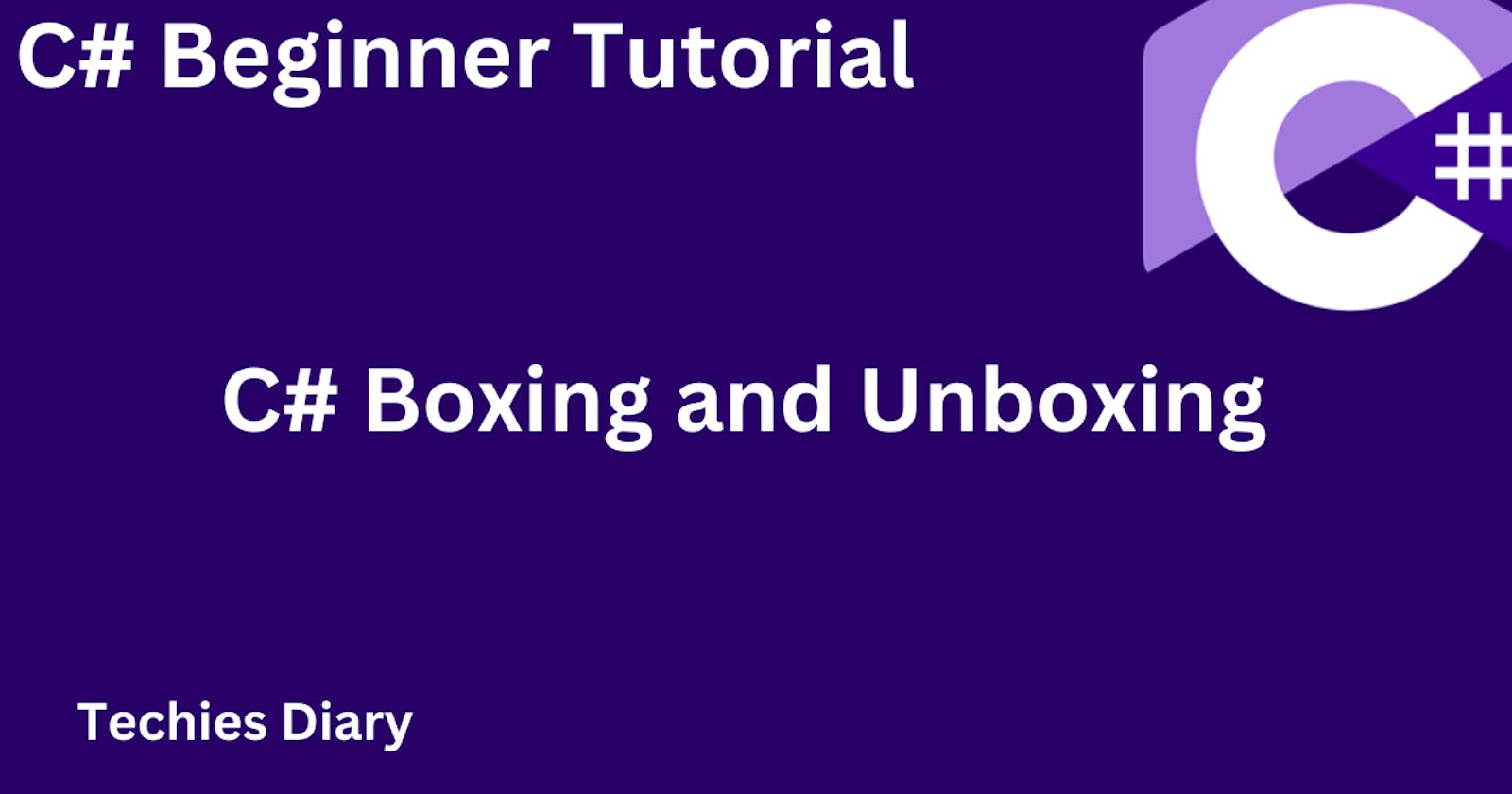Table of contents
While working with C# datatypes, developers often needs to convert value types to reference type or vice-versa. The process of converting value type to reference type is termed as boxing and converting a reference type to value type is termed as unboxing.
System.Object is parent class of all the types, it means its possible to assign in any value to Object type instance. [Object = an alias of System.Object ]Boxing
Boxing is the process of converting value type (int, char etc) to reference type (object). Boxing is an implicit conversion where a value type being allocated on the heap rather than the stack.
int i = 10;
object o = i; //performs boxing - implicit boxing
object o = (object)i; // explicit boxing
object o = (object)i; // explicit boxing but never required
//more practical example
List<object> mixedList = new List<object>();
mixedList.Add("First Group:"); // boxing - string to object
mixedList.Add(10); // boxing - int to object
Unboxing
Unboxing is explicit conversion from Object / reference type to value type. In the unboxing process, the boxed value type is unboxed from the heap and assigned to a value type that is stored on the stack. This process involves below steps
Checking that object instance being 'unboxed' is a 'boxed' value of given value type.
copying the value from object instance to value-type variable.
int i = 123; // a value type
object o = i; // boxing
int j = (int)o; // unboxing
//more practical example
List<object> mixedList = new List<object>();
mixedList.Add("First Group:"); // boxing - string to object
mixedList.Add(10);
foreach (var item in mixedList) {
// mixedList items are of object type,
// while priting, object type will be 'unboxed' to
// corresponding value-type.
Console.WriteLine(item);
}
For the unboxing of value types to succeed at run time, the item being unboxed must be a reference to an object that was previously created by boxing an instance of that value type. Attempting to unbox
nullcauses a NullReferenceException. Attempting to unbox a reference to an incompatible value type causes an InvalidCastException.
That's it for this article. Thanks for reading it and share your thoughts in comment section.

